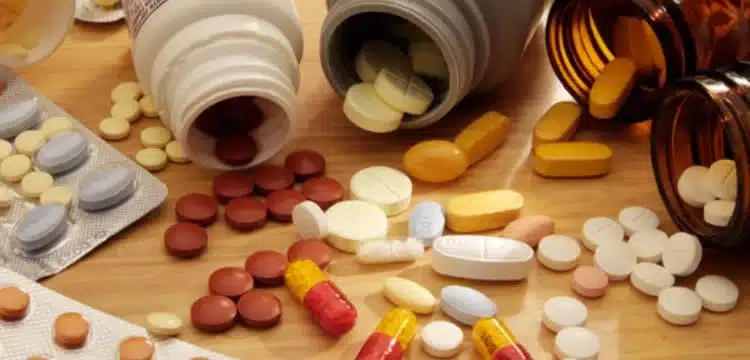[vc_row][vc_column][vc_column_text dp_text_size=”size-4″]The Ministry of National Health conveyed to the cabinet on Thursday that there has been an escalation in the costs of raw materials essential for pharmaceuticals. Consequently, in response to this economic reality, the federal cabinet sanctioned an increase in the prices of medicines.
During the meeting, Kakar emphasized that the government is striving to make medicines accessible to the general public at reasonable and affordable rates. Recognizing the challenges posed by rising raw material costs, the decision to adjust medicine prices is presented as a measure to navigate the economic landscape and ensure the availability of essential medications.
Read more: Medicines Being Sold at Five Times Higher Price: DRAP Exposed
In addition to addressing the current situation, Kakar urged stakeholders to collaboratively formulate proposals aimed at enhancing the performance of the Drug Regulatory Authority of Pakistan (DRAP). By encouraging stakeholders to contribute ideas within the framework of existing regulations on price deregulation, Kakar expressed the government’s commitment to seeking innovative solutions that could be presented to the next elected government for consideration in parliament.
The approval of a Memorandum of Understanding (MOU) between the Competition Commission of Pakistan (CCP) and the State Administration of Market Regulation (SAMR) China marked another significant decision by the federal cabinet. This approval aligns with the recommendations put forth by the Finance Ministry. The participants were informed that the signing of the MoU would facilitate enhanced information sharing between Pakistan and China, among other benefits.
The decision to adjust medicine prices is positioned as a response to the economic dynamics involving the escalating costs of raw materials for pharmaceuticals. The government’s emphasis on ensuring affordability for the general public underscores a commitment to balancing economic considerations with the imperative of making essential medications accessible.
Kakar’s call for stakeholders to contribute proposals for improving the DRAP’s performance reflects a proactive approach toward addressing challenges within the pharmaceutical regulatory framework. By seeking input from various stakeholders, the government aims to foster a collaborative and inclusive process that can lead to more effective and responsive regulatory measures.
Furthermore, the approval of the MOU between CCP and SAMR China represents a diplomatic and regulatory step towards enhancing cooperation and information exchange between the two countries. The collaboration is poised to yield positive outcomes in terms of regulatory practices and market dynamics.
In conclusion, the decision to increase medicine prices, as approved by the federal cabinet, is framed as a response to the rising costs of raw materials for pharmaceuticals. This move is aligned with the government’s broader goal of ensuring the affordability of essential medications for the general public. Additionally, the emphasis on stakeholder involvement in proposing improvements to the regulatory framework and the approval of the MOU with China’s SAMR signify strategic efforts toward effective governance and international collaboration in the pharmaceutical sector.[/vc_column_text][/vc_column][/vc_row]











